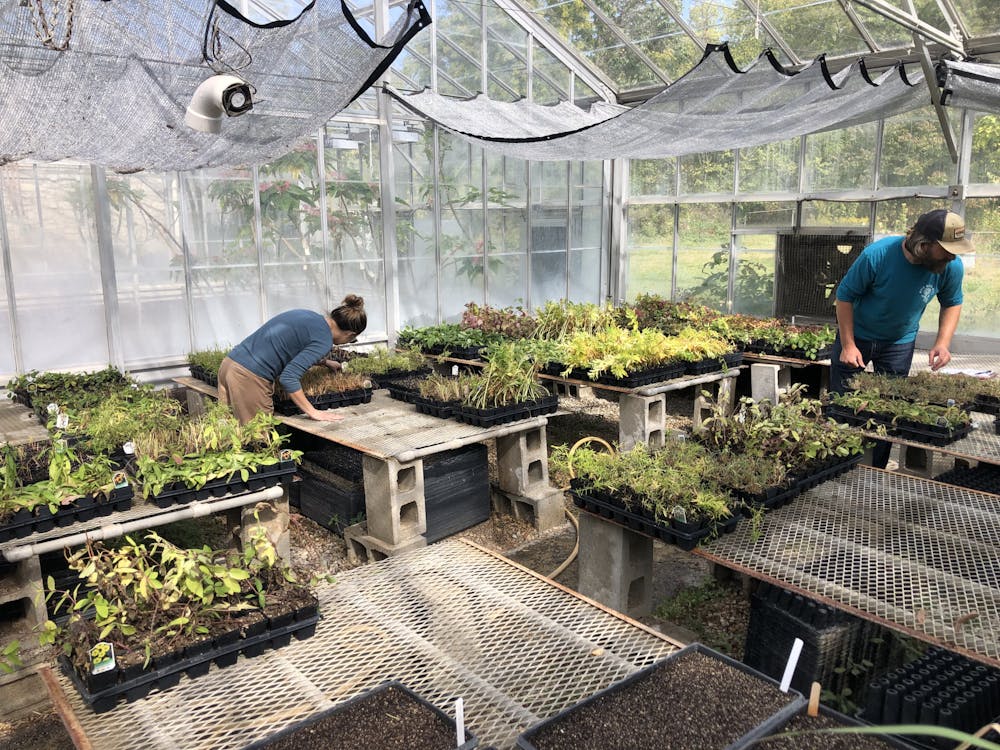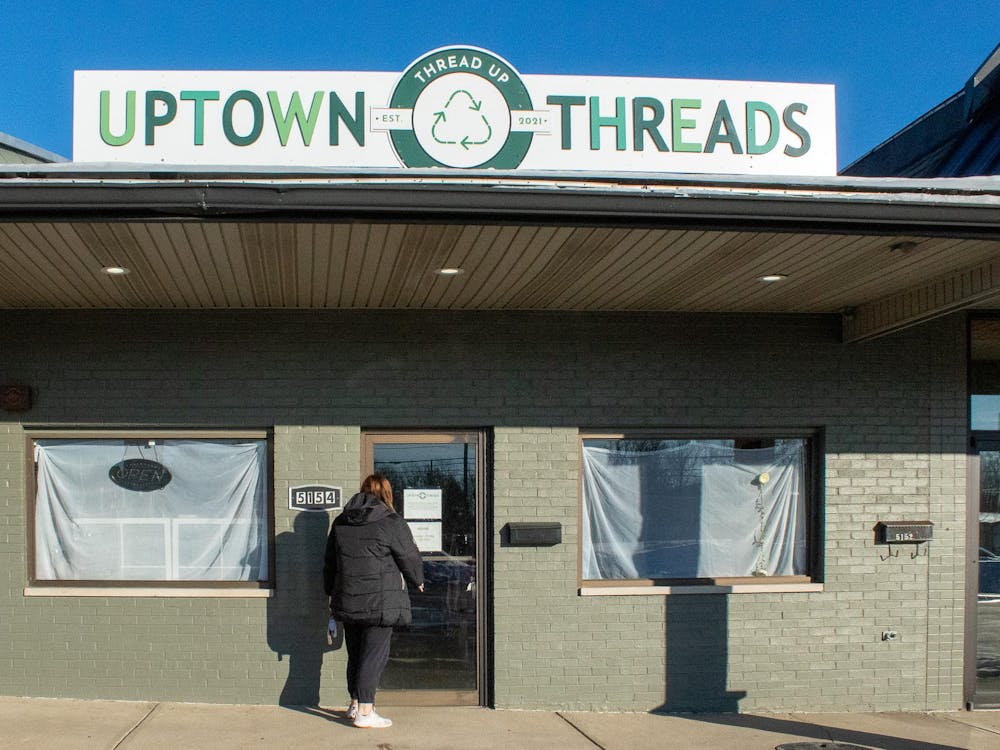When Daniel Accrocco was hired by Miami University five years ago as a project manager, he was assigned to repair run-down seating blocks for an obscure outdoor theater on Western Campus. After studying the space’s history, he wondered why no one else had seen its potential.
“Once people start seeing it and hearing about it and so forth, then I think the activity… will pick up,” Accrocco said. “... Students when they return next August will have a cool place [to host programs].”
Now, plans are underway to renovate and restore the Ernst Nature Theatre by improving infrastructure and planting more than 2,300 pollinator plants at various sites.
The Ernst Nature Theatre, a hidden gem on Miami University’s Western Campus, is a 600-seat outdoor amphitheater beside Peabody Hall. The theater was donated to the Western College for Women in 1922 by Richard P. Ernst, a former U.S. senator from Kentucky who served on the Western College Board of Trustees for several years. The venue hosts several events including the annual West Fest — a community music festival — and Western Alumnae Weekend tours.
Recently, the theater has been underutilized due to its location and its lack of restrooms and accessibility. Accrocco is working with sustainability director Olivia Herron to change that.

Miami’s director of sustainability Olivia Herron (left) stands next to project manager Daniel Accrocco (right) in front of the theater's stage.
“We want more people to come out and use this space, even if it’s just for a regular club meeting,” Herron said. “It’s just a nice underutilized, quiet and very pretty part of campus.”
New infrastructure improvements will include more accessible parking and revamping a trail for those with disabilities to have greater access to the lower levels of the theater. Other improvements include overhauling the upper-level platform, improving the restrooms to accommodate larger crowds, changing the current lighting to LEDs and beautifying the space with native plants.
The Western College Alumnae Association donated more than $200,000 to support the project, considering it a legacy leave for the group’s upcoming disbandment. The group is celebrating its 50th anniversary and is disbanding in June 2024.
Herron recently applied for and received a wildlife grant constituting over 2,300 pollinator plants for the university. The grant, worth well over $20,000, was part of the National Wildlife Federation’s Garden for Wildlife program. The program is dedicated to helping cultivate wildlife and provide the resources for people to bring back butterflies, birds and native bees to their local area.
“Let's say your mom wanted to plant a pollinator garden at home, she could order all the plants off that website,” Herron said. “For every plant somebody buys from their website, they donate a plant.”
Enjoy what you're reading?
Signup for our newsletter
The pollinator plants will be distributed to three different sites, with the most considerable portion going to the theater. The grant comprises 16 species with a good mix of flowers, such as purple coneflowers, and grasses. The rest of the plants will be used to decorate an upcoming sign installation at the Institute for Food Farm and fill in gaps at the butterfly garden in Peffer Park.
According to the U.S. Department of Agriculture, pollinator plants can “beautify your space, increase native biodiversity, increase pollination services and biological control of ‘pest’ insects, and provide community engagement and learning opportunities.”
The pollinator plants are expected to be in the foraging range of the bees from the Miami Apiculture Society, the beekeeping club, providing immense benefits to campus bees.
Following the current timeline, the pollinator plants should be in the ground by mid-November at the latest, with the rest of the infrastructure improvements being subsequently completed by June 2024 before the last alumni kickoff event.
Accrocco envisions the space as a great outdoor venue for large-scale events and concerts where people sit on the allocated seats and bring blankets and deck chairs.
“There isn’t anything like this anywhere else on campus,” Accrocco said. “I see no reason why, in some long-term situation, this couldn’t be turned into a real money-making situation.”
Starting in June next year, any person or club that wants to rent the Ernst Nature Theatre can do so through conference services at Shriver Center.




